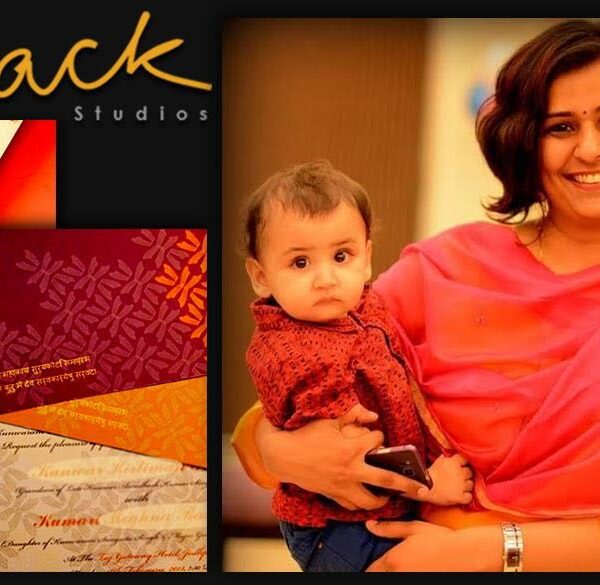Well, indeed it is a hard-hitting question. In India, women can’t decide for their marriages, leave fertility. It is quite an abysmal condition and indeed horrifying.
Control over one’s own body and reproductive health is a fundamental right every woman should have. When a woman does not have bodily integrity, when her body is invaded against her will, when her choices are determined by social norms and practices rather than personal preference, it is unlikely that she can play a pivotal role in decision making, be it at the micro-household level or macro-societal level.
Why have women health movements all over the world fought for access to safe contraception and abortion services?
It is an attempt to reclaim women’s control over their own fertility. In cultures such as India, where motherhood is over-glorified and much-hyped while infertility is viewed as a curse, the use of contraception is frowned upon.
“Where is the choice for women?” asks Poonam Muttreja, Executive Director of the Population Foundation of India. “Women don’t have options, so they end up getting sterilised.”
So instead of the women themselves, the Indian State controls the fertility of women. That is why you have horrendous incidents like the one in Chattisgarh, where 11 women died after undergoing botched sterilisation surgery at a government-run health camp. Definitely heart-wrenching, isn’t it? Just imagine these 11 women had no control over their own body just because they are a part of a society in which they are objectified. Even their death has reduced them to mere numbers. Other states with a particularly high reliance on sterilization include Karnataka (87% of all contraceptive users), Rajasthan (87%), Orissa (87%), Madhya Pradesh (86%), Maharashtra (86%), Gujarat (83%), Mizoram (83%), and Bihar (81%).
In February 2013, NDTV released footage of a large group of women passed out in an open space beside Manikchak hospital in West Bengal. This was the overspill of a mass sterilisation of 103 women across one single day.
Can you imagine, in 2011, Rajasthan declared it would it would sterilise 1 percent of its population in exchange for mobile phones and lottery tickets for cars. Horrendous!
Whether or not a woman has a choice over her fertility, it also depends on various factors like religion, caste, age, education level, class and awareness. Sadly, most women do not know the effect of age on their fertility. Most are ignorant of the fact that after 30, they’re more likely to have a decreased ovarian reserve, apart from other problems like pre-term birth, medical problems like diabetes, hypertension and hypothyroidism which can result in miscarriages and increased chances of anomalies in the child.
Scholars like Sadhana Arya, Nivedita Menon and Jinee Lokaneeta have kept the debate live, reflecting the true colours of a woman’s helplessness.
In a situation, where women have no ‘right’ to clean drinking water, basic facilities, health care or education; where society decides where women will live, how they will live (and often, how they will die), whom they will marry, whether they will study; where the State (and international development and aid agencies) believes they have the ‘right’ to determine how many children women will bear, when they will get sterilised and what form of contraception women must ‘opt’ for; it is apparent that the struggle for Indian women’s reproductive rights needs to go further than reproductive freedom, and enter the arena of social, economic and political rights.
Nevertheless, in the past few years, the situation has improved a little bit. Now at least, educated working women are empowered enough to make choices.
Dr. Lakshmi Ananth shares about the following options currently available to women:
Newer generation intrauterine devices: The newer generation IUDs contain hormones that are slowly released into the uterus. Mirena is one such and contains the hormone levonorgestrel. Unlike some of the other newer birth control methods, Mirena does not affect one’s periods and instead actually reduces heavy bleeding.
Birth Control Ring: This is a soft, flexible ring that has to be inserted into the vagina and works by releasing hormones similar to those in the pill. But unlike the pill, the ring is effective for 3 weeks, so it does not have to be changed every day.
Depot contraceptive injections: Instead of taking a pill every day, contraceptive hormones are given as intramuscular injections. Depot Provera, an injection containing medroxyprogesterone for instance, is effective for about 150 days.
Women can also try out female condoms, which like male condoms are effective at preventing pregnancy and STDs. When used correctly, female condoms are 95% effective at preventing pregnancy.
Benefits of using female condoms:
- Can be inserted well in advance of sex if preferred
- doesn’t require immediate withdrawal after climax
- Offer an alternative to male condoms
- Are better than male condoms for sensation because they warm to the body
- Can be initiated by women
- Are suitable for people who are allergic to latex
- can be bought without a prescription
- allow women to share the responsibility of preventing STDs
The only side effect of using a female condom might be an allergic reaction to the polyurethane or the lubricant, but this is uncommon. There are two types of female condoms that are available in the market. One made from nitrile polymer and the other from natural rubber latex. The female condom brands that are available in the market are Ormelle, Velvet, Cupid and FC 2 (nitrile polymer). The condom has to be used correctly every time, no matter what, in order for it to be effective. If the male partner won’t wear a condom, but still wants protection against STDs and unwanted pregnancies, the female condom is the way to go.
Nevertheless, conservative views about sex, high cost and poor awareness are hindering the use of the female condom in India despite its introduction two decades ago. HIV/AIDS and reproductive health groups have named September 12 “Global Female Condom Day” to help spread awareness of the contraception, which they say helps empower women by giving them control over their bodies and sexual health.












